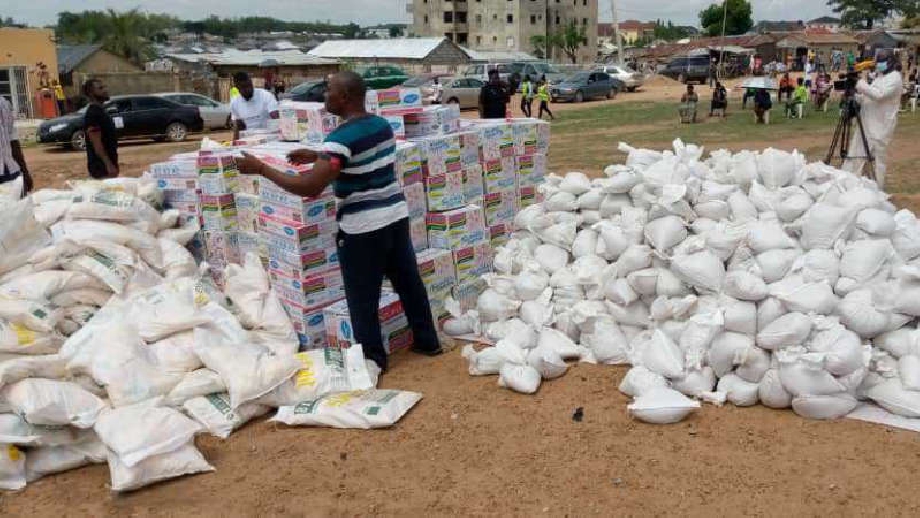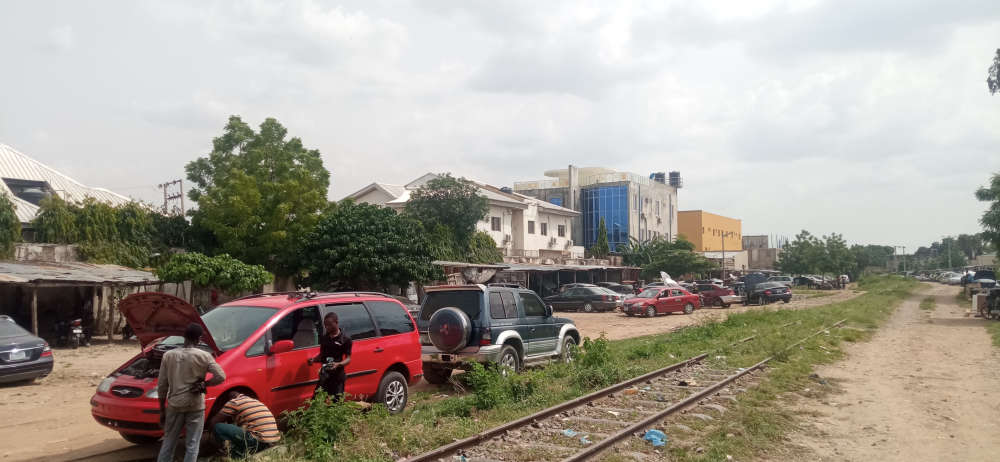
The National Population Commission (NPC) has attributed the federal and State governments' uncertainties in distributing petrol subsidy removal palliatives to a lack of collaboration with the commission.
Citizens in various states have been complaining that the handing out of the materials meant to cushion the economic impact of the removal of petrol subsidies has been non-inclusive.
However, the NPC claims it has reliable data to aid the distribution of palliatives to the most vulnerable Nigerians despite not conducting its 2023 population census.
Subsidy Removal Pains
The pronouncement of petrol subsidy removal by President Bola Tinubu on 29 May led to an increase in the pump price of the commodity by about 180 percent.
The sharp increase led to hikes in the prices of other products, including foods, which rely on petrol-powered vehicles to be transported from production points to markets.
The resulting reduction in purchasing power led to economic hardship in several homes, triggering the Nigerian government to approve the distribution of five truckloads of rice and N5 billion to each of the country’s 36 states.
On 4 September, Kano State began the distribution of these palliatives to individuals, but not a few people are complaining of getting nothing.
A civil servant who identified himself as Abdul said his children are yet to resume school because he is unable to pay their tuition fees.
He complained about the subsidy removal hardship.
“Wallahi, I’m telling you, some of my children are now at home. I’ve increased their holidays by two weeks until we are paid salaries,” Abdul said in a shaky tone.
“Before the removal of the petrol subsidy, I fueled my car for N8,000 but now I have to pay more than N27,000,” he added.

Other civil servants who spoke to Nigeria Info rejected the reduction in the number of work days and free transportation some state governments offer as cushioning measures.
To them, the gestures are unrealistic.
“I don’t think that will work here in Kano. As someone with a family, you cannot stay in your home for a good four days a week,” a staff member at the Audu Bako Secretariat in Kano said.
“The government needs to add something to our salary and make provisions for soft loans with free interest for the civil servants,” another worker suggested.
For Auwalu: “What the government needs to do is to control the market prices or put so much interest in agriculture if they are ready!”
Junior Workers not Excluded from Palliatives Allocation -Kano Civil Service
Some junior government workers say they have been excluded from the palliatives distribution; a claim the Kano State Head of Civil Service debunked.

“The governor of Kano has made it abundantly clear that the items of commodities that will be given to the public include civil servants from grade level one to six, which is the junior cadre of the civil service. There are other palliative measures in the pipeline which will be announced in due course,” Usman Bala Muhammed, the Head of Service said.
He listed the palliatives available for junior workers to include foodstuff.
“Government has procured 99 trucks of rice, about 150 trucks of maize and there are other items that make a unit or package of palliatives to be distributed.”
Artisans Lament Hardship
Just like junior public workers, artisans in Kano are complaining. The chairman of Railway Line Mechanics, Aminu Shuaibu, lamented cars brought to workshops for maintenance and repairs have reduced drastically since the removal of petrol subsidies.

“You can see, there is no motor around here,” he said, looking around his workshop.
“Anybody that has one or two vehicles is just for a while. Normally, if you come here, you’ll see a lot of cars but now there is no work, we are just patching.”
He appealed to the government to assist artisans with cash handouts.
We Have Enough Data to Aid Palliative Distribution -National Population Commission
The Kano state government says the palliatives to be given out are targeted at the most vulnerable people in the society, but the data to achieve this remains a big question.
All efforts to speak with the Secretary to the Kano State Government who leads the palliative distribution drive, Baffa Bichi, were fruitless as of the time of this report.
In July 2023, the National Economic Council, NEC, discarded the National Social Register used by former president, Muhammadu Buhari’s administration to implement its conditional cash transfer program.
The search for a social register that captures all strata of the public led us to the office of the Kano State Director of the National Population Commission (NPC), Ismaila Alhasan Dogo.
Dogo accused the federal and state governments of failure to engage the commission in the palliative distribution process.
He boasted that the NPC has sufficient data to aid the governments in their palliative distribution.
“The commission has data and this data honestly would have gone a long way in assisting the policymakers,” he said.
“Even though the census has not been conducted, we have the preamble data to assist the government when we are contacted both from the state and national level.”
Several analysts argue that the palliatives are not a long-term solution to the current hardship, yet many Nigerians are more concerned about the handouts reaching the poorest people without being hijacked by corrupt officials.


